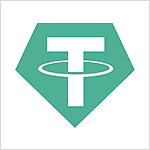Coinbase set to delist non-compliant stablecoins by December in line with European laws, USDT could be at risk
|
- Coinbase announced that it would delist stablecoins that are not compliant with MiCA laws, per Bloomberg report.
- The European Union intends to enact stricter laws to tighten its grip around the digital asset industry.
- Coinbase will begin delisting assets that fall under the category from December 30.
Coinbase announced plans on Friday to delist stablecoins that are non-compliant with the European Union's MiCA laws beginning from December 30, per Bloomberg's report.
Coinbase to delist stablecoins as EU plans to strengthen MiCA laws
Coinbase has proposed to end support for stablecoins that do not comply with the EU's Markets in Crypto Assets (MiCA) regulations.
This follows the EU's resolve to intensify its regulatory framework regarding the digital asset sector, according to Bloomberg.
"Guidance for crypto exchanges and other companies operating in the bloc will kick in from December 31," the report stated.
Coinbase announced that users in the European Economic Area (EEA) will soon have the option to convert their assets into compliant stablecoins, including Circle's USDC, in the upcoming months.
The delisting process will commence on December 30 as the company emphasized its commitment to adhere to regulatory standards in the region.
"Given our commitment to compliance, we intend to restrict the provision of services to EEA users in connection with stablecoins that do not meet the MiCA requirements by December 30, 2024," a spokesperson from Coinbase told Bloomberg.
Coinbase's action may restrict stablecoin issuer Tether, whose USDT token is allegedly not yet compliant with MiCA laws.
Other exchanges, including OKX, Binance, Bitstamp and Uphold, have also taken steps to meet the EU's regulatory requirements regarding stablecoins by cutting support for stablecoins like USDT for their European users to maintain compliance in the EU.
The European Commission extended MiCA's oversight to stablecoin issuers on June 30, requiring that they possess an e-money license from at least one EU member state. The aim is to enhance oversight and ensure compliance among stablecoin providers operating within the region.
As of the time of writing, only Circle's USDC and EURC tokens have obtained the MiCA license, qualifying them to continue operating under European laws.
Information on these pages contains forward-looking statements that involve risks and uncertainties. Markets and instruments profiled on this page are for informational purposes only and should not in any way come across as a recommendation to buy or sell in these assets. You should do your own thorough research before making any investment decisions. FXStreet does not in any way guarantee that this information is free from mistakes, errors, or material misstatements. It also does not guarantee that this information is of a timely nature. Investing in Open Markets involves a great deal of risk, including the loss of all or a portion of your investment, as well as emotional distress. All risks, losses and costs associated with investing, including total loss of principal, are your responsibility. The views and opinions expressed in this article are those of the authors and do not necessarily reflect the official policy or position of FXStreet nor its advertisers.